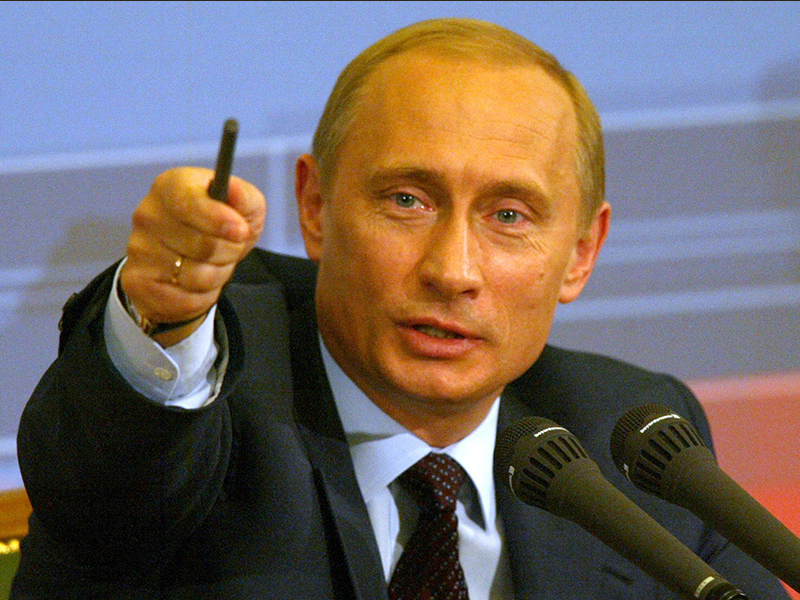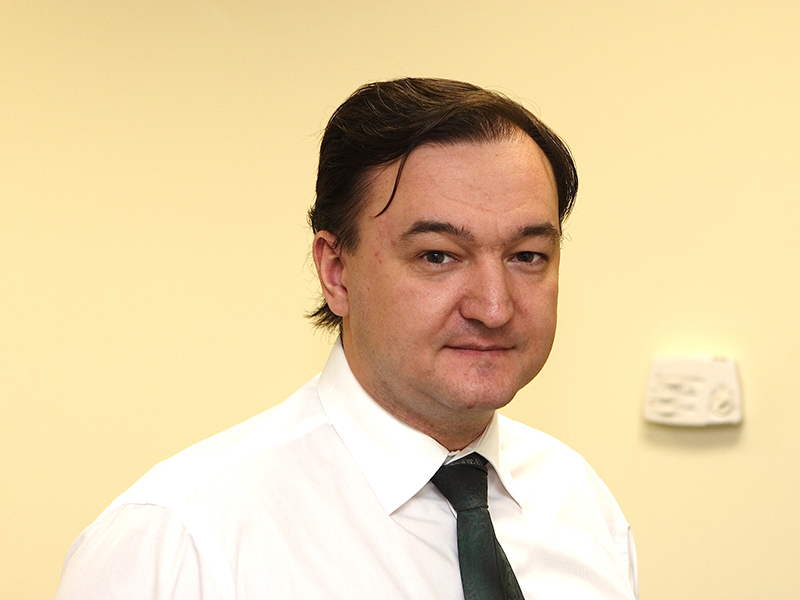The grandson of a former leader of the American Communist Party, who fulfilled his ambition of becoming the richest capitalist in Russia, today calls himself “the number 1 enemy” of Russian President Vladimir Putin.
That’s because Bill Browder, who amassed billions of dollars in an investment fund in Russia in the early 1990s, is on a relentless mission to expose the Russian president as, not only corrupt, but having blood on his hands.
Browder, 54, who now lives in London, England, has, since 2009, devoted his life to seeking justice for the late Sergei Magnitsky, his former Russian lawyer. Magnitsky died in prison at the age of 37, after being tortured, denied medical care and finally beaten to death, Browder told a spellbound audience of over 500 at Congregation Shaar Hashomayim in Montreal on April 29.
After Browder was expelled from Russia in 2005 “as a threat to the country,” Magnitsky investigated why the US$230 million in taxes paid by Browder’s liquidated investment fund did not go into the national treasury. Rather, he charges, the money went into the pockets of oligarchs and even Putin himself, whom Browder alleges demanded bribes of half their assets, if they wanted to avoid prosecution.
READ: AFTER PASSAGE OF MAGNITSKY LAW, COTLER URGES OTHERS TO FOLLOW SUIT
Browder was sentenced to nine years in prison in absentia and Putin, he says, exonerated the police officers who were directly responsible for Magnitsky’s death.
Browder detailed what happened in his 2015 book, Red Notice: A True Story of High Finance, Murder and One Man’s Fight For Justice.
His appearance, which was sponsored by the Canadian Associates of Ben-Gurion University of the Negev (CABGU), featured a conversation between Browder and former MP Irwin Cotler. The two of them have been working together since 2010 to persuade governments worldwide to adopt legislation that would allow them to place sanctions on certain individuals within Russia, and other countries.
Canada finally adopted a so-called Magnitisky Act last fall, despite Putin warning of “adverse consequences” for Canada if it did.

Thirty Russians, as well as 18 Venezuelans and three South Sudanese, have been sanctioned under the new law, and Cotler said some Iranians and other Venezuelans will soon be added.
The first Magnitisky Act was passed by the U.S. Congress in 2012 and applied to human rights violators in Russia generally, not only the officials implicated in Magnitsky’s death. In 2016, the law was expanded to target abusers in all countries, as well.
The United Kingdom, Estonia, Lithuania, Latvia and Gibraltar also have similar laws, and Browder said Denmark, Sweden, Holland, France, Australia and South Africa are considering their own.
Cotler thinks the law also has a deterrent effect. “Authoritarianism is resurgent globally and Russia is the epicentre,” said Cotler. “Violators know the culture of impunity is over.”

Browder and Cotler are pressing for the issue to be on the agenda at the G7 Summit, which takes place in Charlevoix, Que., in June. Canada, which assumed the presidency of the G7 this year, can take the lead in urging the other member countries to adopt a Magnitsky Act, said Cotler.
The law is worrisome to the Putin regime. Just a couple of days before Browder spoke in Montreal, news broke about Russian lawyer Natalia Veselnitskaya had asked the Trump campaign to repeal the Magnitsky Act at a meeting with Paul Manafort, Donald Trump Jr. and Jared Kushner at Trump Tower in June 2016.
She denied ties to the Kremlin, but emails that have surfaced show that she had worked for the chief legal office.
“She was an agent of the Kremlin, she was there on behalf of Putin,” Browder stated.
Sergei Magnitsky is dead because of me.
– Bill Browder
Cotler hailed Browder as “a veritable human rights hero of our time, who has the courage to act on his convictions, to confront evil and transform history.”
Browder was devastated by Magnitsky’s death and said this campaign is a small measure of comfort, but can never be a substitute for prosecuting those responsible.
“Sergei Magnitsky is dead because of me; he was, effectively, killed as my proxy,” said Browder. “The only thing I could do is go after those who killed him.… This is my burden for the rest of my life.”
Proceeds from the evening will go toward scholarships for graduate studies in human rights at Ben-Gurion University, said CABGU president Larry Nachshen.
